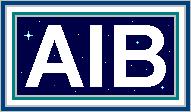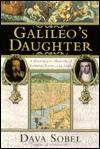| News | Astro Events | History | Tips | Info Base | Reviews | Bookstore | Links | Home |
 |
Galileo's Daughter |
 Galileo's
Daughter: A Historical Memoir of Science, Faith, and Love
Galileo's
Daughter: A Historical Memoir of Science, Faith, and Love
by Dava Sobel
Format: Hardcover, 432pp.
ISBN: 0802713432
Publisher: Walker & Company
Pub. Date: October 1999
ABOUT THE BOOK
Synopsis
Inspired by her long fascination with Galileo, and by the remarkable surviving letters of his daughter, which Sobel has translated into English for the first time, Galileo's Daughter is a book of great originality and power, a biography unlike any ever written on Galileo.
Sobel, the author of the bestseller Longitude, brings Galileo to life as never before—boldly compelled to explain the truths he discovered, human in his frailties and faith, devoted to family, especially to his eldest daughter.
The voices of Galileo and his daughter, Suor Maria Celeste, echo down the centuries through letters and writings, which Sobel masterfully weaves into her narrative, building toward the crescendo of history's most dramatic collision between science and religion. In the process, she illuminates an entire era, when the flamboyant Medici grand dukes became Galileo's patrons, when the bubonic plague wreaked its terrible devastation and prayer was the most effective medicine, when the Thirty Years' War tipped fortunes across Europe, and when one man fought, through his trial and betrayal by his former friend, Pope Urban VIII, to reconcile the Heaven he revered as a good Catholic with the heavens he revealed thorough his telescope. An unforgettable story, Galileo's Daughter is a stunning achievement. With forty black-and-white illustrations.
From The Publisher
The author of the bestselling Longitude now offers a biography unlike any other on Galileo, focusing on the astronomer's relationship with his daughter, Virginia, a cloistered nun, illuminating an era when one man fought to reconcile the heaven he revered as a good Catholic with the heavens revealed through his telescope. 40 illustrations.
Reviews
From Publisher's Weekly
Despite its title, this impressive book proves to be less the story of Galileo's elder daughter, the oldest of his three illegitimate children, and more the story of Galileo himself and his trial before the Inquisition for arguing that Earth moves around the Sun. That familiar tale is given a new slant by Sobel's translation--for the first time into English--of the 124 surviving letters to Galileo by his daughter, Suor Maria Celeste, a Clarisse nun who died at age 33; his letters to her are lost, presumably destroyed by Maria Celeste's convent after her death. Her letters may not in themselves justify a book; they are devout, full of pious love for the father she addresses as "Sire," only rarely offering information or insight. But Sobel uses them as the accompaniment to, rather than the core of, her story, sounding the element of faith and piety so often missing in other retellings of Galileo's story. For Sobel shows that, in renouncing his discoveries, Galileo acted not just to save his skin but also out of a genuine need to align himself with his church. With impressive skill and economy, she portrays the social and psychological forces at work in Galileo's trial, particularly the political pressures of the Thirty Years' War, and the passage of the plague through Italy, which cut off travel between Florence, where Galileo lived, and Rome, the seat of the Pope and the Inquisition, delaying Galileo's appearance there and giving his enemies time to conspire. In a particularly memorable way, Sobel vivifies the hard life of the "Poor Clares," who lived in such abject poverty and seclusion that many were driven mad by their confinement. It's a wholly involving tale, a worthy follow-up (after four years) to Sobel's surprise bestseller, Longitude. (Oct.) Copyright 1999 Cahners Business Information.
From Kirkus
Sobel, author of the bestselling Longitude (1995), has elegantly translated the letters Galileo's eldest child, Virginia, wrote to him and uses them as a leitmotif to illuminate their deep mutual love, religious faith, and dedication to science. Yes, Galileo had a daughter, in fact two daughters and a son, the illegitimate offspring of a liaison with a Venetian beauty. Both daughters, considered unmarriageable because of their illegitimacy, became nuns in a convent south of Florence, not far from where Galileo had homes. But Virginia, as Suor Maria Celeste, was deeply involved in her father's life work, even transcribing his writings, while managing convent affairs and serving as baker, nurse, seamstress, and apothecary. Thus, we learn that Galileo was often confined to bed with incapacitating illnesses and that he treasured the medicines as well as the sweets and cakes his daughter provided. He was also something of a bon vivant, enjoying the wines produced by his vineyards, writing ribald and humorous verse as well as literary criticism. Indeed, his celebrated Dialogues were conceived as dramas involving three persons, with one playing the role of simpleton as foil for the two. In the end, it was the Dialogues that argued for the Copernican view that the Earth moved around the Sun, which invoked the wrath of Pope Urban VIII, who had earlier been a loyal friend and supporter of Galileo. The subsequent trial in Rome ended with Galileo's recantation and his banishment first to Siena, and then to house arrest in Florence. Sobel provides a few correctives to tradition and fills out the cast of personae who were Galileo's chief defenders and enemies. But itís the deft apposition of the devoted and pious letters of Suor Maria Celeste that add not only verisimilitude, but depth to the character of the writer and her father—revealed as a man of great intellect as well as religious faith and lovingkindness. Alas, his letters to her are lost. (First printing of 75,000)
| Top |
Be sure to visit the Base Bookstore, an affiliate of
| News | Astro Events | History | Tips | Info Base | Reviews | Bookstore | Links | Home |